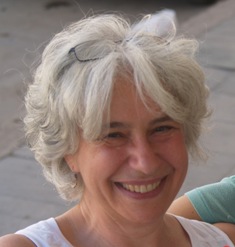DNA- and RNA-associated autoantigens in the activation of human B cells
Abstract
Members of the Toll-like receptor gene family have been clearly implicated in the development of systemic autoimmune diseases such as SLE. In vitro, RNA or RNA-associated autoantigens can activate TLR7-expressing cells, while DNA or DNA-associated autoantigens activate TLR9 expressing cells. However the specific contributions of TLR7 and TLR9 to the disease process in vivo is less clear; TLR7-deficient mice develop attenuated clinical disease and TLR9-deficient mice develop more severe disease. We have identified inherent differences in the TLR9/DNA-and TLR7/RNA-driven responses of murine autoreactive B cells consistent with the in vivo phenotype. The goal of the current application is to determine whether the TLR9/TLR7 dichotomy applies to human B cells. A critical aspect of this project is to devise a physiologically relevant readout system that reflects both the BCR and TLR signaling components of autoreactive B cell activation and differentiation. Our strategy involves the development of bifunctional antibodies that will enable us to target physiologically relevant autoantigens to BCR-mediated endosome trafficking pathways in human B cells. The outcome of TLR7 vs TLR9 activation will be evaluated in vitro and in vivo. These studies will further provide a high throughput system for testing TLR-based inhibitors and thereby identify appropriate TLR-based therapeutic targets.




